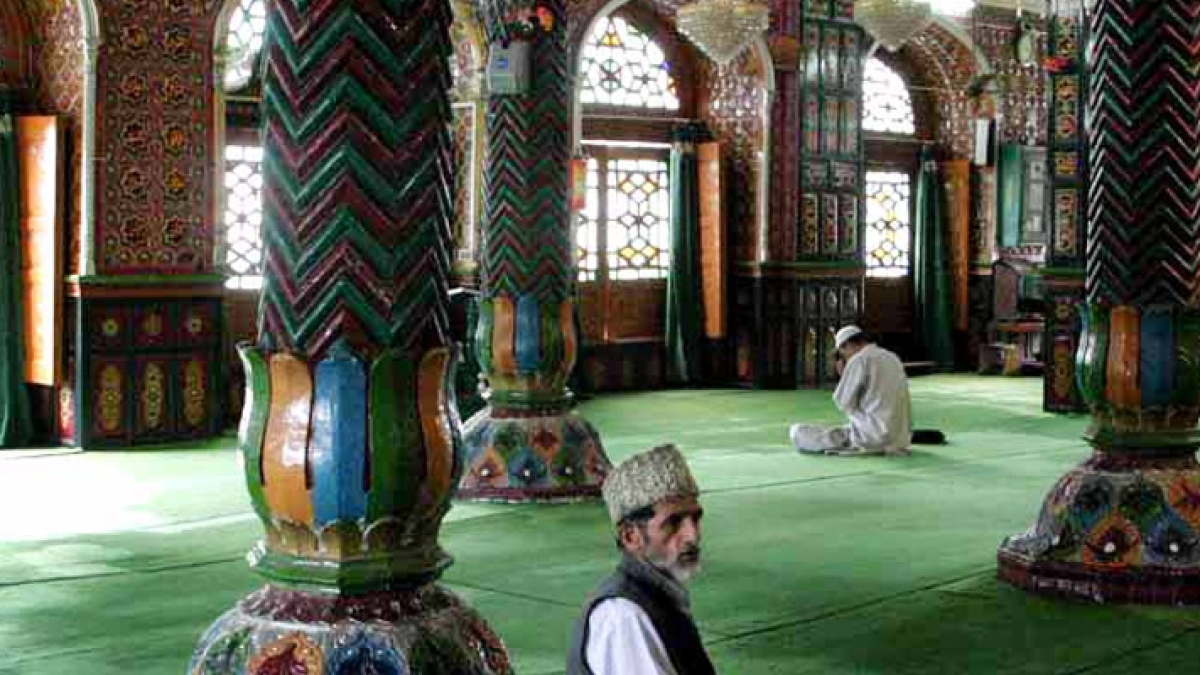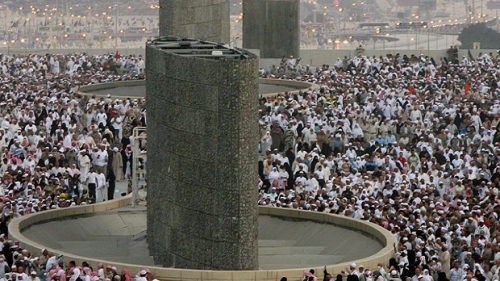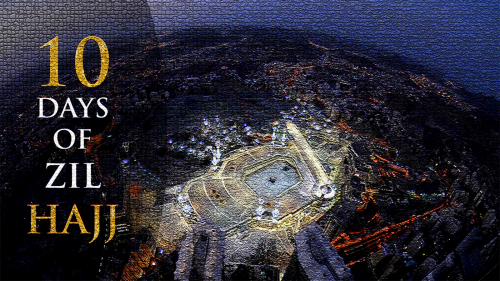A conversation about faith, a dialogue about life

Last Friday I wrote in the morning, went to campus to collect student papers and then went to a nearby mosque for Friday prayers and to listen to the sermon. After that I went to Starbucks to grade my students' papers and to meet my wife who was waiting for me there.
We later filled up the car with gas and went to a store to find a gift for a high-school friend in Jakarta who wanted a gorilla doll for his daughter. I hadn't been having any luck with the doll; I went to Toys r Us, Ross and now this store. No success.
On the way home we stopped at a Muslim Egyptian grocery store like we usually do to buy chicken and some Asian or Middle Eastern items. We usually go to different stores for groceries and daily necessities.
This visit was interesting. In the store a lady asked me: "Are you Filipino?" I am used to that question and smiled and replied, "No, I am Indonesian." She said, "O, I see." And then we were silent. I broke the silence: "Where are you from? Are you from Egypt?" I asked this knowing I was in an Egyptian store and that the woman had spoken Arabic with the owner.
I also had a naive assumption about identifying strangers by how they appear. She said: "No, I am from Syria." She continued: "I am an Armenian who lives in Syria. We speak Armenian and Arabic in Syria. In the past, the Ottoman Empire forced Christian Armenians to convert to Islam or they had to leave." I said, "So you remain in your religion?" She nodded.
She then asked: "What religion are you?" I replied: "Muslim, and I teach about Islam at a university." She nodded. Then she took her items to the cashier, who was an Egyptian woman who always wore a headscarf - the owner. They spoke in Arabic. The lady paid and as she was leaving the store looked at me and said, "Nice to meet you," and I said, "Nice to meet you." She left the store. My wife and I did as well after paying for our items.
"Education is the way out of many prejudices and problems facing humankind."
As we walked to the car the same lady spoke to me from her car as she was about to drive away, saying: "I wanted to tell you that we have to learn about one religion and other religions." And I said, "Yes, I agree". Then she said, "I wanted to tell you that Islam teaches about killing people, like the chapter Al-Taubah of the Koran states, 'qatilullazina laa yumiinuuna billaahi wa laa bil yam al-akhir' [Kill those who believe not in Allah nor the Last day], whereas the Christian Bible teaches 'love your enemy'." "See," she said. I responded that we needed to understand the context.
That chapter, as in any other chapter or in any other scripture, needed to be taken in context. She nodded, but didn't seem convinced by my explanation about "context". She said again, "Islam teaches killing non-Muslims." I said: "Well, Muslims kill people," but Islam has been interpreted in various ways. She was still sitting in her car and I was standing beside it. My wife was waiting for me in our car. She said goodbye and I said, "Hope to see you again." And we left.
From this brief encounter I now feel more and more committed to teaching about Islam and different religions contextually and with various approaches. Sure, literal interpretations prevail, but there are other methods of interpretation.
 |
The complete verse of Al-Taubah verse 29 reads: "Fight those who believe not in Allah nor the Last Day, nor hold that forbidden by Allah and His Messenger, nor acknowledge the Religion of truth, from among the People of the Book, until they pay the jizya, a poll tax, with willing submission, and feel themselves subdued." This verse literally justifies the subjugation of non-Muslims under Muslim rulers, and proclaims war against them in any situation.
This verse has been used by Muslims today to justify their acts against non-Muslim minorities although they now live in nation-states. The context suggests that the verse was sent down with the previous verses and the following ones during times of war when some non-Muslim leaders planned to attack Muhammad and Muslims. This interpretation is not shared by all Muslims and non-Muslims, as they approach the Koran differently and with set objectives.
I realize that that woman's interpretation was not representative of Syrians or Christians about Islam. Monolithic and negative perceptions of Islam may exist for a variety of reasons, like reading the scripture from a particular lens as a mechanism to justify one's own faith and demonize another.
People might simply hear one-sided opinions from a particular perspective from the television, the news or priests or preachers in their temples, churches or mosques about other religions. Some Muslims did and do still kill other Muslims and non-Muslims in some parts of the world, and use the Koran to rationalize it.
I wonder about similar situations when Muslims hear about Christianity, Judaism or any other religion through the partial quoting of one or two verses and then come to believe strongly in a biased interpretation of certain texts or scriptures.
Is this situation a common one for all religious individuals regarding other religions and other religious communities? Are people passively intolerant toward other religions, although only a few ever actually turn violent against others?
Education is the way out of many prejudices and problems facing humankind, enlightening education that discusses the complexity and diversity of religious convictions and practices. We may have our own prejudices about others, but we may also not be literate enough about our own faith and convictions, religious or not.
Source: The Jakarta Post - Muhamad Ali. The writer is an assistant professor of Islamic studies at the University of California, Riverside.
Topics: Iman (Faith And Belief), Interfaith
Views: 6102
Related Suggestions
Wa Billahi Towfeeq
instead of hearsay from media and their radical preachers and
worship places.
Deuteronomy 13:6-16, the Lord instructs Israel to kill anyone who
worships a different god or who worships the Lord differently.
Exodus 15:3 'The LORD is a man of war: the LORD is his name'. (The
LORD is a warrior; the LORD is His name.)
.
Luke 12:51- 'Do you suppose that I came to grant peace on earth? I
tell you, no, but rather division.'
Luke 19:27 'And now about these enemies of mine who didn't want me
to be their king--bring them in and execute them right here in my
presence.'
Matthew 10: 34-36 'Think not that I am come to send peace on earth:
I came not to send peace, but a sword.'
Samuel 15:2-3, the Lord orders Saul to kill all the Amalekite men,
women and infants.

















